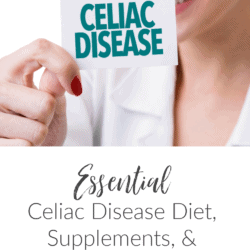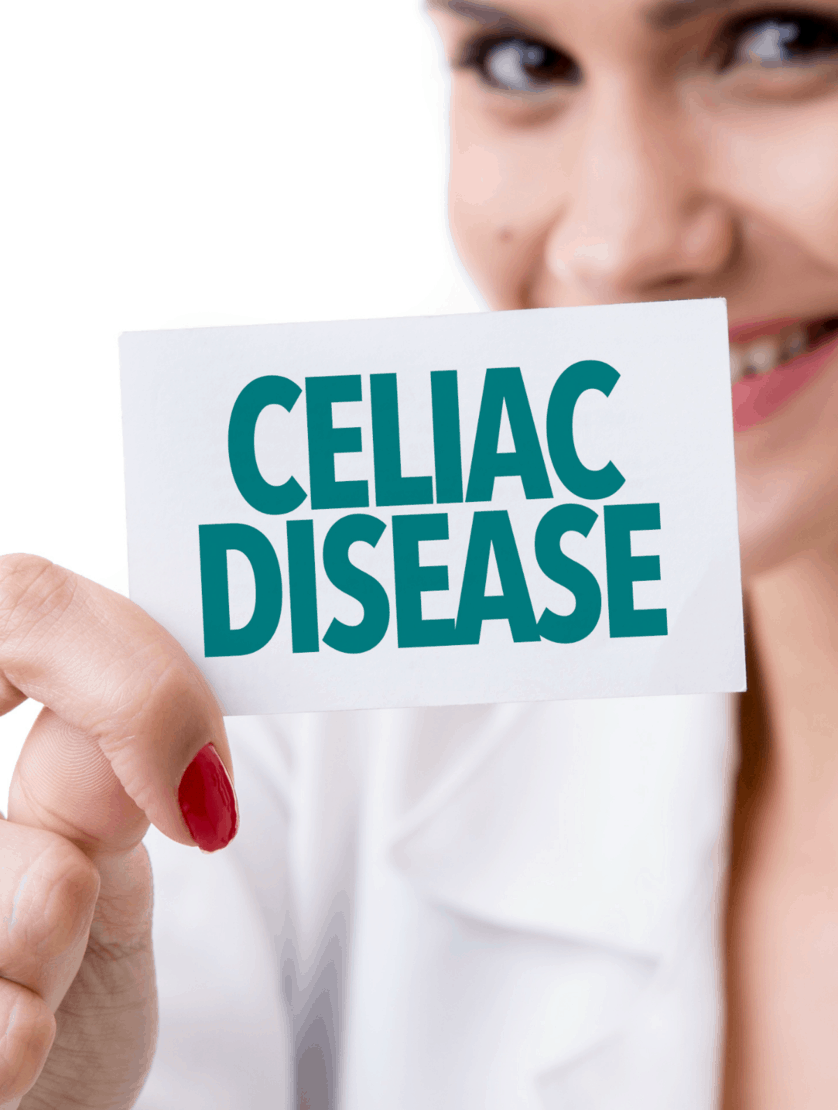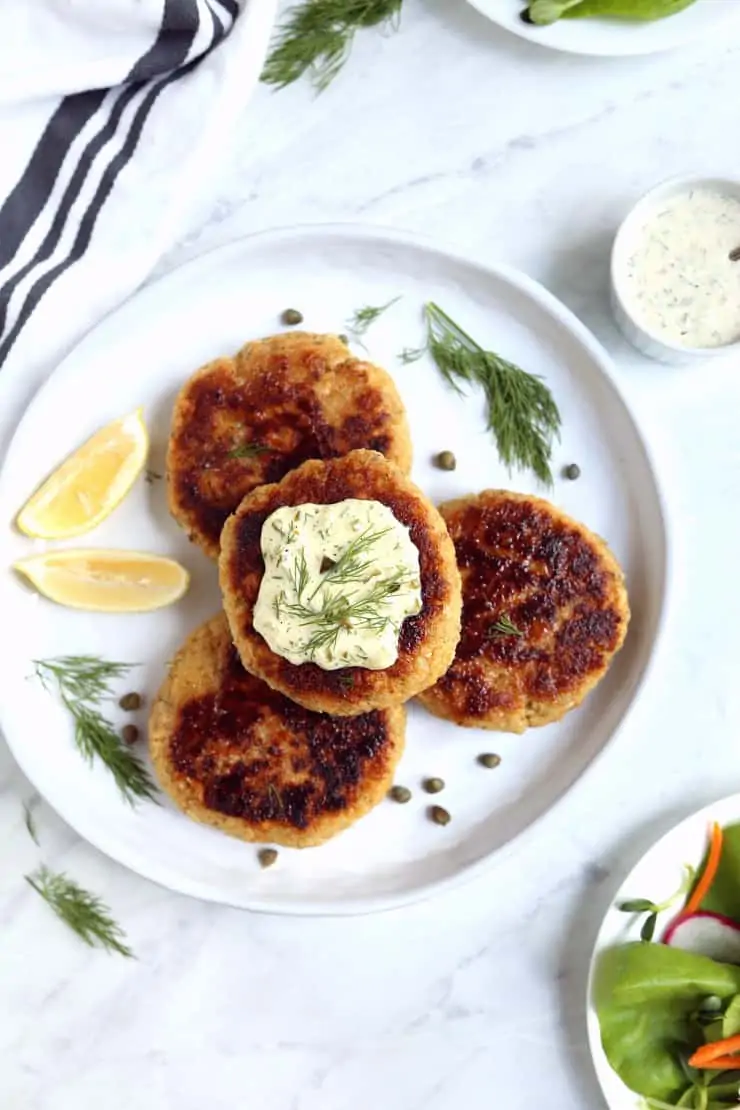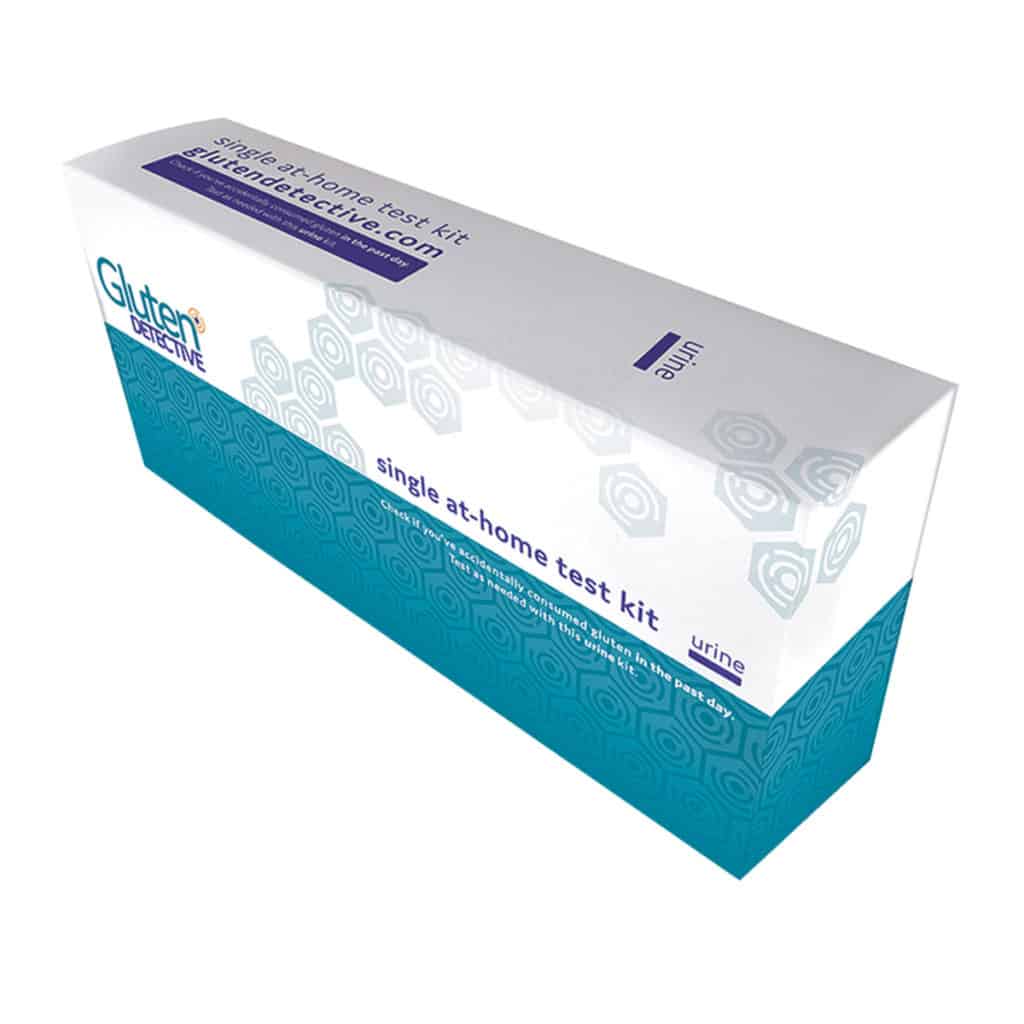Managing Celiac Disease goes way beyond just switching to gluten free foods. These 9 essential diet, supplement, and lifestyle tips will help you live well with Celiac!
Note from Dena: This post was co-written with Karina Medina, Dietetic Intern, as part of a research partnership between Back To The Book Nutrition and post-graduate nutrition students from the University of Houston.
We’ve talked before about how to know if you have Celiac Disease, but today our focus is on what to do once you’re diagnosed. And, as you’ll see, staying healthy after a Celiac diagnosis goes way beyond just switching to gluten free bread. 🙂
9 Essential Diet, Supplements, and Lifestyle Tips for Celiac Disease
1. Follow a Strict Gluten Free Diet
A strict gluten free diet is the most important and efficient way to manage CD and is necessary for remission. For those with CD, this has to go beyond just eating gluten free foods since even trace amounts can cause intestinal damage.
In fact, one recent study found that nearly half of Celiac patients on a gluten free diet were getting gluten exposure and had evidence of intestinal damage on urine testing. (1)
Avoid hidden gluten, cross contamination of utensils or pots used to cook both gluten containing foods and gluten free foods, and possibly even touching or inhaling gluten.
Enjoy These Gluten Free Foods:
- Fruits and vegetables
- Lean proteins (from animals raised on pasture)
- Healthy fats
- Nuts and seeds
- Dairy (from animals raised on pasture)
- Beans, legumes, and nuts
- Gluten-free grains
Avoid These Gluten-Containing Foods:
- Products containing wheat, rye, or barley.
- Beer and malt alcohol
- Condiments and sauces that contain gluten
Avoid Hidden Gluten in Foods:
We usually associate gluten with grains but there are other hidden food sources of gluten:
- Processed lunch meats
- Candy and candy bars
- Soups
- Salad dressings or marinades
- Brown rice syrup
- Meat substitutes
- Energy/granola bars
- French fries and potato chips
- Some gums and breath mints
Favorite Gluten Free Recipes:
- Easy Salmon Burgers in 15 min (also dairy free) – pictured above
- Stovetop Spinach and Sausage Penne
- Rotisserie Chicken and Rice Soup
- Rotisserie Chicken Enchilada Casserole
- Salted Chocolate Chunk Cookies (also grain free and dairy free)
- Fudgy Flourless Brownies (also grain free and dairy free)
2. Avoid Non-Food Products That May Contain Gluten
Not only can gluten be found in food, but many other household and personal care products as well.
- Toothpaste and mouthwash
- Make-up
- Bath soaps and shampoos
- Lotion
- Medications
- Vitamins and other dietary supplements
- Laundry detergent
- Household cleaning products
3. Consider a More Comprehensive Autoimmune Diet
Autoimmune Protocol (AIP) diet (sometimes called “Autoimmune Paleo”) has been shown to put some autoimmune conditions into remission. This next level can facilitate additional gut healing and immune regulation if just going gluten free hasn’t gotten you the results you expected.
AIP removes all grains as well as dairy, egg, and other foods that commonly cause gut damage, inflammation, and immune reactions in individuals with Celiac and other autoimmune conditions. It also encourages addition of foods that help heal and seal the gut and nourish the body.
4. Avoid Touching or Inhaling Gluten
Not everyone with Celiac will be affected to the same degree by skin contact with or inhalation of gluten, but it’s best to avoid these if possible and take extra measures if you know they trigger symptoms. Gluten degrading enzymes can be a good tool when exposure to these situations is unavoidable.
- Bakeries, grocery stores, and kitchens where gluten products are prepared
- Restaurant kitchens
- Preparing gluten containing food for others in your own kitchen
Note: This post contains affiliate links. By making purchases through these links, you pay the same amount for products, but a portion of the sale will be sent my way to help with blog expenses. Thanks!
5. Use at home urine tests to check for accidental gluten exposure
Similar at home urine tests like the Gluten Detective test are an affordable way to help you identify the source of an accidental gluten exposure. For example, if you get a positive test after eating a gluten free meal at a certain restaurant, you may take additional measures to reduce exposure there or may even think twice about eating there again.
6. Correct Nutrient Deficiencies
One study showed nutrient deficiencies in those with CD even after 10 years on a gluten free diet! (3) Thus, long term nutrient supplementation is almost always recommended.
People with CD are commonly deficient in the following:
- Fiber
- Iron
- Calcium
- Zinc
- Folate
- Vitamin D
- Vitamin B6
- Vitamin B12
If you have Celiac, work with your provider to find supplements that do not contain gluten and that are well absorbed, such as my Daily Foundation Multivitamin-mineral. Liquid supplements or those with liposomal delivery are sometimes preferred initially.
Micronutrient testing can help determine whether you are low in one or more of the above nutrients. Schedule a free, 10 minute Discovery Call to learn more!
7. Consider Enzyme Supplements
Because the small intestine damage from CD also reduces the amount of digestive enzymes to help break down foods so nutrients can be absorbed, many practitioners recommend supplemental enzymes with meals.
Digestive Enzyme Supplements
Digestive enzymes contain a mixture of enzymes that break down fats, carbohydrates, and proteins into smaller components that can be absorbed by the body. They come in capsule, powder, or chewable tablet form, and are usually taken with every meal and snack.
Gluten Degrading Enzyme Supplements
Gluten degrading enzymes cannot break down large volumes of gluten, but are helpful to offset trace amounts. They should not be used as an excuse to intentionally eat gluten, but they can be taken as a precautionary measure when accidental gluten exposure may be more likely (i.e., eating at a restaurant).
8. Reduce Stress
It is well known that stress affects the function of the GI tract, causing inflammation and often Leaky Gut, which makes CD worse and aggravates symptoms. Set aside time each day for stress relieving practices.
- Listen to soothing music
- Read a book
- Exercise (but don’t overdo it)
- Practice deep breathing
- Spend time in prayer/meditation
- Get enough good quality sleep
- Balance your blood sugar
- Resolve chronic infections
- Lose weight if you are overweight
Download my Free, 3 Step Stress Management Guide here!
9. Fix the Gut
Adjusting the diet is a critical step in fixing the gut, but additional testing and supplements may be necessary to fully repair GI inflammation and Leaky Gut, and to restore balance to the gut microbiome.
Work with Dena to get comprehensive stool testing and a personalized plan to fix your gut!
When Will I see Results?
Results vary from person to person, depending on the symptoms and the progression of the disease. Most people will feel better quickly, but to feel “normal” again may take some time and may be a three steps forward, two steps backward process. Don’t get discouraged – just be consistent and your body will thank you for it in the long run!
About the Co-Author
Karina Medina is originally from Mexico and completed her B.S. in Human Nutrition and Foods at the University of Houston, where she is currently completing her dietetic internship. She is passionate about nutrition and disease prevention and would like to specialize in Pediatric Nutrition to help new generations love and respect their bodies by living healthier lifestyles.
Disclaimer: Information on this site is intended only for informational purposes and is not a substitute for medical advice. Always consult with a trusted healthcare provider before implementing significant dietary change. Read additional disclaimer info here.
References
- Moreno, M. L., Cebolla, Á., Muñoz-Suano, A., Carrillo-Carrion, C., Comino, I., Pizarro, Á., León, F., Rodríguez-Herrera, A., & Sousa, C. (2017). Detection of gluten immunogenic peptides in the urine of patients with coeliac disease reveals transgressions in the gluten-free diet and incomplete mucosal healing. Gut, 66(2), 250–257. https://doi.org/10.1136/gutjnl-2015-310148.
- Beyond Celiac. Sources of Gluten. https://celiac.org/gluten-free-living/what-is-gluten/sources-of-gluten/
- Hallert, C., Grant, C., Grehn, S., Grännö, C., Hultén, S., Midhagen, G., Ström, M., Svensson, H., & Valdimarsson, T. (2002). Evidence of poor vitamin status in coeliac patients on a gluten-free diet for 10 years. Alimentary pharmacology & therapeutics, 16(7), 1333–1339. https://doi.org/10.1046/j.1365-2036.2002.01283.x







These tips are so great! I learned so much about gluten that I didn’t know before. I thought gluten was only in food and drink products.
Those are very helpful tips. Doing a totally Celiac diet can be a challenge if you do not know where to start. It really helps that there are so many options now than before.
I know a lot of people are choosing to be gluten free but gluten can be life threatening to those with this disease. This was an informative post.
I have a friend who suffers from this and these are super useful tips, I’ll share this with her.
These tips would help me a lot to work on my diet I’ve never seen the food supplements before but I would to check all of these thanks to this!
I know some friends that have this. This would be helpful to them.
I have a son who has been unable to eat gluten since he was 15, six years ago. It was a really rough couple of years at first and we have been through all of the above. He never got tested, though, because he wasn’t willing to eat gluten and get sick for days for the sake of getting a test result. We already knew he couldn’t eat it and got really sick. We just didn’t know if it was Celiac or some other reason. Anyway, six years in and he is doing much better!
That is great to hear Marie. Thank you for sharing your story.
These are really useful tips for everyone! I wasnt aware that inhaling gluten could be harmful so thanks for the information!